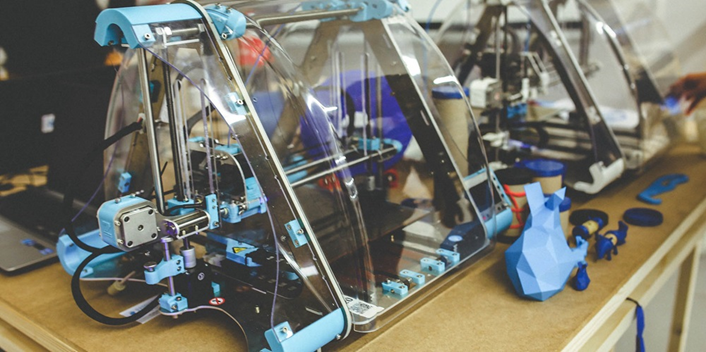The construction industry is undergoing a profound transformation, propelled by rapid technological advancements. In particular, electrical work—an integral construction component—has experienced significant changes, taking planning, safety, productivity, and sustainability to new heights. This evolution revolutionizes how construction professionals approach projects and shapes the trajectory of construction careers and education. In this blog post, we delve into the transformative power of technology on electrical work within construction and its critical influence on the construction community at large.
Enhanced Planning and Design Efficiency
The days of cumbersome hand-drawn plans are long gone. The advent of Building Information Modeling (BIM) and Computer-Aided Design (CAD) software has revolutionized electrical planning and design. These digital tools allow for precise simulations, optimizing the design phase before breaking ground. For subject matter experts in the field of construction, BIM’s seamless integration across different domains— including HVAC courses, plumbing courses, electrical courses, architecture courses, and structure courses—has established a common language that enhances teamwork and cohesion among various specializations.
In today’s time, we encounter the integration of technology for enhanced living experiences or developers feel the importance of adapting to consumer demands in apartment construction.
As the construction industry evolves to meet modern demands, developers are integrating must-have technological amenities to attract residents. Learn more about the latest in-demand apartment amenities Developers | The next MUST HAVE Apartment Amenity?
Improved Safety Standards
The paramount concern of any construction project is safety standards. Harnessing the Internet of Things (IoT) and wearable technology, job sites have become safer for electrical workers. Real-time remote monitoring systems help to preempt hazardous situations, ensuring both immediate response and preparedness. Online construction courses now emphasize technology’s role in advancing safety protocols—a critical component in comprehensive construction training programs.
Increased Productivity
Enter the era of automation and robotics, where electrical tasks, once manual, are now in the mechanical hands of machines. This transition boosts productivity remarkably, advancing schedules and improving execution speed. Modular construction methods also streamline labor-intensive processes, contributing to a more productive and controlled environment. For construction industry leaders, embracing these innovations is not an option but a necessity to meet the demands of modern infrastructure projects.
Energy Efficiency and Sustainability
Today’s electrical work in construction is not just about power distribution; it’s equally about energy efficiency and sustainability. Smart energy management systems and introducing renewable energy sources are at the forefront of sustainable construction practices. Architects and engineers, who may have begun their careers with a foundation in architecture or electrical course, are now expanding their expertise to include sustainable and energy-efficient technologies.
Quality Control and Compliance
Thanks to digital inspections and the availability of real-time data analysis, ensuring quality and compliance in electrical work has never been more straightforward. Modern digital tools provide construction teams with detailed insights, helping them to adhere to stringent industry standards and regulations. For professionals pursuing a construction career, a deep understanding of these tech-driven quality control methods is paramount.
Integration with Renewable Energy Systems
The fusion of construction and renewable energy technology is giving rise to new career paths within the field. Solar power systems and innovative energy storage solutions are being integrated into buildings, calling for specialized knowledge from the construction education arena.
To master these emerging technologies, consider Stonepile’s comprehensive courses that specialize in renewable energy integration within the construction industry Practical Construction Courses | STONEPILE College
Training and Skill Development
Professional development in construction is now synonymous with technological adaptation. With a plethora of online construction courses available, professionals can continuously update their skill sets. Training through virtual reality (VR) and augmented reality (AR) creates immersive experiences that complement traditional methods, delivering cutting-edge professional development opportunities to new entrants and seasoned experts alike.
Predictive Maintenance and Monitoring
Maintenance of electrical systems has been elevated with IoT sensors, offering meticulous equipment monitoring. Predictive analytics preempts breakdowns, allowing maintenance to evolve from reactive to proactive strategies. This branch of construction technology has opened doors for construction networking, wherein professionals share insights and innovative practices for optimum asset management.
Wireless and Remote Technologies
The implementation of wireless communication systems has heralded a new age for construction sites. Electrical teams can now remotely control and monitor systems, optimizing resource allocation and increasing installation precision. This pivotal development underscores the demand for continuous professional growth and adaptation within the construction industry.
Cost-Effective Solutions
Advanced cost estimation and project management platforms provide financial foresight, ensuring that projects meet not only design and safety criteria but financial scopes as well. These cost-effective solutions aid professionals in managing budgets better and deliver projects without compromising on quality or sustainability. Harnessing such technology is essential for those pursuing a construction career, whether it be modular construction, structural engineering, or any other specialization within the domain.
Advancements in Electrical Construction Transforming the Industry
The rapid progression of technology has expanded the boundaries of what is possible within electrical construction. One notable advancement is the use of Building Information Modeling (BIM). BIM allows for a digital representation of the physical and functional aspects of a facility, enhancing communication, reducing errors, and improving planning and delivery.
Another significant development is the use of drones for surveying and inspection purposes. Drones can safely and efficiently inspect electrical infrastructure, especially in hard-to-reach areas, reducing risk and improving maintenance efficiency.
In addition, the proliferation of smart technology is paving the way for intelligent construction. Smart grids, for example, leverage information technology to optimize electricity distribution, enhancing efficiency and sustainability.
These technological advancements are not only revolutionizing electrical construction processes, but they are also setting new standards for safety, efficiency, and sustainability within the industry. It is an exciting time for those involved in electrical construction as the industry continues to innovate and evolve.
Emerging Technologies: 3D Printing, Robotics, and Innovative Tools in Electrical Construction
3D printing, or additive manufacturing, is a promising technology in the realm of electrical construction. It enables the precise fabrication of custom parts on demand, reducing the time and cost associated with traditional manufacturing processes. For instance, electrical components such as conduit fittings and junction boxes can be 3D printed on-site, expediting the construction process.

Robotics is another transformative technology in this sector. Robots can perform various tasks, such as automated drilling, cable laying, and assembly, enhancing productivity and minimizing human error. They can also operate in hazardous environments, thereby improving worker safety. Companies also leverage machine learning algorithms in robots to improve their performance and adaptability continually.
Lastly, several innovative tools are transforming electrical construction. One such tool is augmented reality (AR). AR overlays digital information onto the physical environment, allowing electricians to visualize cable paths, circuit layouts, and potential obstructions before installation. Another breakthrough tool is the smart helmet, which integrates AR with safety features to provide real-time data and enhance worker protection.
These technologies are pushing the boundaries of electrical construction, increasing efficiency, safety, and precision. They symbolize the industry’s future but are integral to its present, substantively impacting the way projects are executed today.
Conclusion
Technology has indisputably transformed electrical work in construction, bringing a wave of increased efficiency, enhanced safety, and a greener approach to building. Continuous learning is key in the field, whether through an electrical course or hands-on experience. Explore our online course on Electrical Systems & Voltage Distribution Fundamentals to enhance your skills. Keeping pace with construction technological trends is not simply about staying relevant; it’s about pushing the envelope to construct tomorrow’s world. Construction education isn’t just about learning the ropes—it’s about leading the charge in a rapidly evolving industry driven by relentless innovation and an unyielding pursuit of excellence.
Stay connected on our social media.


